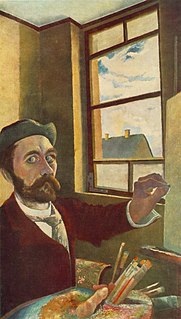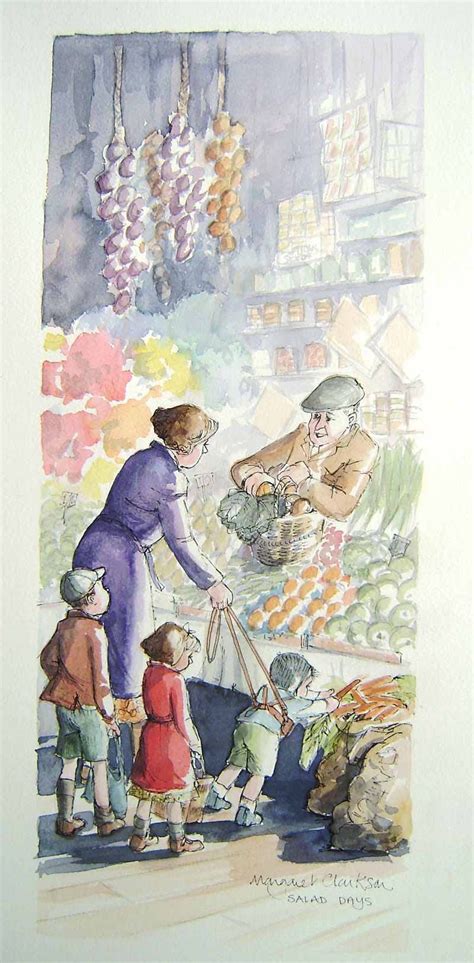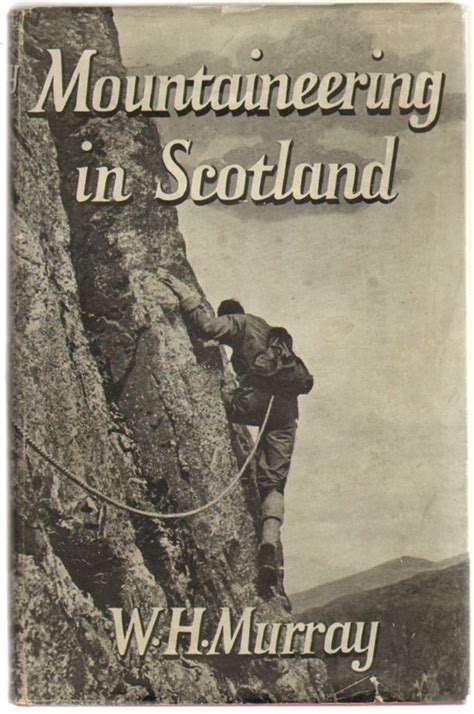Top 620 Providence Quotes & Sayings - Page 11
Explore popular Providence quotes.
Last updated on April 20, 2025.
I, Tivadar Kosztka, who gave up his prime of youth for the rebirth of the world, accepting the call of the invisible Spirit, had a regular civil job, comfort, wealth then... Going to Paris in 1907 I oppositely standed alone in front of millions with only the result of the divine providence, and I beat the vanity of the world hollow, but I haven't killed 10 million people, only sobered them. I haven't made commercials from things, because I didn't care for the pedlar's press; I retired from the world instead, going to the top of the Lebanons, and I painted cedars.
James often wondered at the chain of flukes it must have taken to bring him through with his own life and limbs intact. Once he might have believed it to be the work of Providence but it seemed to him now that to thank God for his life would be to suggest God had shrugged off all the others flicked them away like cigarette butts by the thousands and that seemed like abominable conceit. James Dorsey took no credit for being alive. His higher power these days was Chance.
On accepting adversity in our lives: Always it is initiated by an act of will on our part; we set ourselves to believe in the overruling goodness, providence, and sovereignty of God and refuse to turn aside no matter what may come, no matter how we may feel. I mistakenly thought I could not trust God unless I felt like trusting Him. Now I am learning that trusting God is first of all a matter of the will. I choose to trust in God, and my feelings eventually follow.
Until one is committed, there is hesitancy, the chance to draw back, always ineffectiveness. Concerning all acts of initiative and creation, there is one elementary truth the ignorance of which kills countless ideas and splendid plans: that the moment one definitely commits oneself, then providence moves too. All sorts of things occur to help one that would never otherwise have occurred. A whole stream of events issues from the decision, raising in ones favor all manner of unforeseen incidents, meetings and material assistance which no man could have dreamed would have come his way.
I meditate, and when I do, Prince Harry appears in my subconscious and meditates with me. It's a little strange but I don't think there's anything I can do about it. Sometimes he's not the only one; the other day it was me, Prince Harry, the Dalai Lama, Mr. Rogers, Coco the gorilla, and George Clooney. We were all floating above the earth looking down at the continents as they passed. George Clooney suggested I visit Providence, Rhode Island. The Dalai Lama sighed deeply and said he'd like to visit Tibet. Poor Dalai Lama.
Divine Providence has played a great part in our history. I have the feeling that God has created us and brought us to our present position of power and strength for some great purpose. It is not given to us to know fully what that purpose is, but I think we may be sure of one thing, and that is that our country is intended to do all it can, in cooperating with other nations to help created peace and preserve peace in the world. It is given to defend the spiritual values-the moral code-against the vast forces of evil that seek to destroy them.
Our aim - our only aim - is to be at home in Christ. He's not a roadside park or hotel room. He's our permanent mailing address. Christ is our home. He's our place of refuge and security. We're comfortable in his presence, free to be our authentic selves. We know our way around in him. We know his heart and his ways. We rest in him, find our nourishment in him. His roof of grace protects us from storms of guilt. His walls of providence secure us from destructive winds. His fireplace warms us during the lonely winters of life. We linger in the abode of Christ and never leave.
In a sermon entitled “God's Providence,” C. H. Spurgeon said, “Napoleon once heard it said, that man proposes and God disposes. 'Ah,' said Napoleon, 'but I propose and dispose too.' How do you think he proposed and disposed? He proposed to go and take Russia; he proposed to make all Europe his. He proposed to destroy that power, and how did he come back again? How had he disposed it? He came back solitary and alone, his mighty army perished and wasted, having well-nigh eaten and devoured one another through hunger. Man proposes and God disposes.
God might grant us riches, honours, life, and even health, to our own hurt; for every thing that is pleasing to us is not always good for us. If he sends us death, or an increase of sickness, instead of a cure, Vvrga tua et baculus, tuus ipsa me consolata sunt. "Thy rod and thy staff have comforted me," he does it by the rule of his providence, which better and more certainly discerns what is proper for us than we can do; and we ought to take it in good part, as coming from a wise and most friendly hand.
History, when rightly written, is but a record of providence; and he who would read history rightly, must read it with his eyes constantly fixed on the hand of God. This statement of a nineteenth-century historian sums up the responsibility of the Christian teacher of history, for he who would teach history or any subject matter rightly, must teach it with his eyes constantly fixed on the hand of God.
In this hour I would ask of the Lord God only this: that, as in the past, so in the years to come He would give His blessing to our work and our action, to our judgement and our resolution, that He will safeguard us from all false pride and from all cowardly servility, that he may grant to us to find the straight path which His Providence has ordained for the German people, and that he may ever give us the courage to do the right, never to falter, never to yield before any violence, before any danger.
It is easy to see things in retrospect. But I was ignorant then of everything but my own happiness, and I don’t know what else to say except that life itself seemed very magical in those days: a web of symbol, coincidence, premonition, omen. Everything, somehow, fit together; some sly and benevolent Providence was revealing itself by degrees and I felt myself trembling on the brink of a fabulous discovery, as though any morning it was all going to come together–my future, my past, the whole of my life–and I was going to sit up in bed like a thunderbolt and say oh! oh! oh!
Howbeit your faith seeth but the black side of providence, yet it hath a better side, and God shall let you see it. ... “For we know that all things work together for good to them that love God,” ergo, shipwreck, losses, &c., work together for the good of them that love God: hence I infer, that losses, disappointments, ill tongues, loss of friends, houses, or country, are God's workmen, set on work to work out good to you, out of everything that befalleth you.
There are some women who seem to be born without fear, just as there are people who are born without the ability to feel pain. The painless ones go around putting their hands on hot stoves, freezing their feet to the point of gangrene, scalding the lining of their throats with boiling coffee, because there is no warning anguish. Evolution does not favour them. So too perhaps with the fearless women, because there aren't very many of them around. ... Providence appears to protect such women, maybe out of astonishment.
The past is never dead. It's not even past. All of us labor in webs spun long before we were born, webs of heredity and environment, of desire and consequence, of history and eternity. Haunted by wrong turns and roads not taken, we pursue images perceived as new but whose providence dates to the dim dramas of childhood, which are themselves but ripples of consequence echoing down the generations. The quotidian demands of life distract from this resonance of images and events, but some of us feel it always.
My experiences of men has neither disposed me to think worse of them nor be indisposed to serve them: nor, in spite of failures which I lament, of errors which I now see and acknowledge, or the present aspect of affairs, do I despair of the future. The truth is this: The march of Providence is so slow and our desires so impatient; the work of progress so immense and our means of aiding it so feeble; the life of humanity is so long, that of the individual so brief, that we often see only the ebb of the advancing wave and are thus discouraged. It is history that teaches us to hope.
God moves in a mysterious way His wonders to perform; He plants his footsteps in the sea, And rides upon the storm. Deep in unfathomable mines Of never failing skill He treasures up his bright designs, And works his sovereign will. Ye fearful saints fresh courage take, The clouds ye so much dread Are big with mercy, and shall break In blessings on your head. Judge not the Lord by feeble sense, But trust him for his grace; Behind a frowning providence He hides a smiling face.
It is the duty of all Nations to acknowledge the providence of Almighty God,. to obey his will, to be grateful for his benefits , and humbly to implore his protection and favor... beseech Him to pardon our national and other transgressions; to enable us all, whether in public or private stations, to perform our several and relative duties properly and punctually to render our National Government a blessing to all the people by constantly being a Government of wise, just, and constitutional laws, discreetly and faithfully executed and obeyed
You must realize that it is the ordinary way of God's dealings with us that our ideas do not work out speedily and efficiently as we would like them to. The reason for this is not only the loving wisdom of God, but also the fact that our acts have to fit into a great complex pattern that we cannot possibly understand. I have learned over the years that Providence is always a whole lot wiser than any of us, and that there are always not only good reasons, but the very best reasons for the delays and blocks that often seem to us so frustrating and absurd.
There is nothing in which deduction is so necessary as in religion," said he, leaning with his back against the shutters. "It can be built up as an exact science by the reasoner. Our highest assurance of the goodness of Providence seems to me to rest in the flowers. All other things, our powers, our desires, our food, are all really necessary for our existence in the first instance. But this rose is an extra. Its smell and its colour are an embellishment of life, not a condition of it. It is only goodness which gives extras, and so I say again that we have much to hope from the flowers.



















